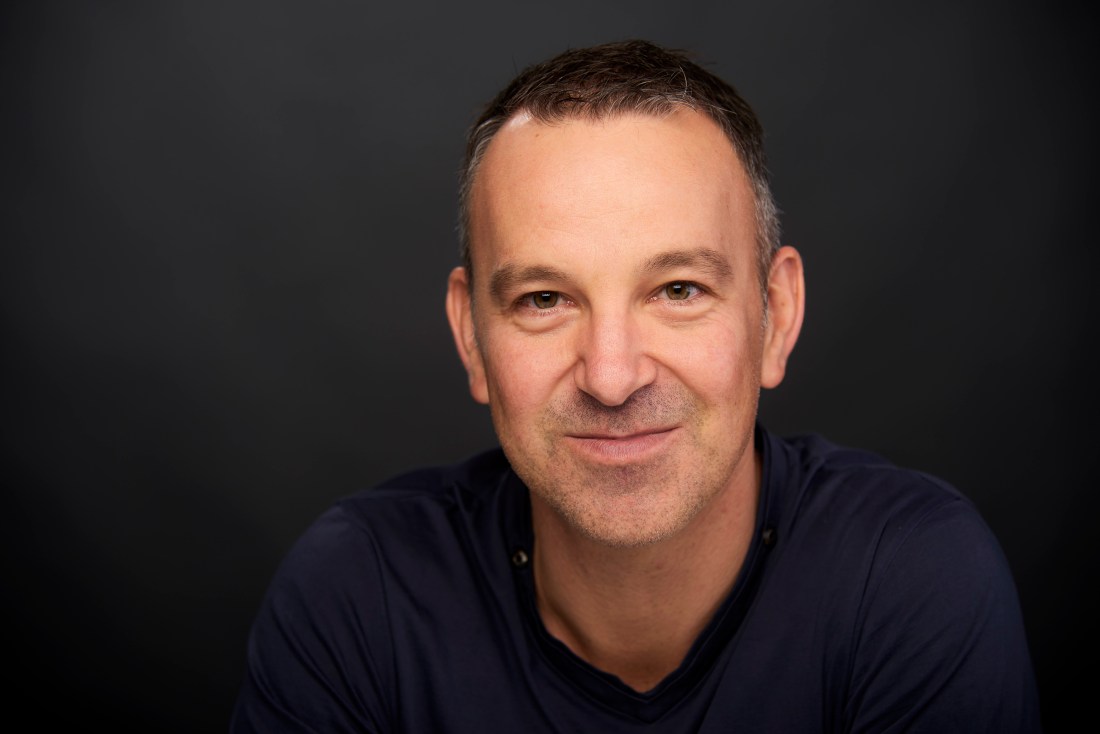If you’ve ever opened an Apple product, you can likely recall how it felt as the two halves of the box separated.
“Apple knows more than anyone: that’s worth money,” says Lee Moreau, professor of the practice of design at Northeastern University.
“My hand knows the feeling,” he continues, “when that box is separating, top and bottom. That’s been designed. And I think it’s a great example of what we do on our best days.”
As someone who describes himself as an untraditional academic — “I’m not writing papers in the traditional sense,” he says — Moreau engages as a public intellectual through other means, like podcasting.
“I love the conversational space that podcasting affords, I love the intimacy,” Moreau says. “People like listening to conversations.”

In addition to his academic work, Moreau has collaborated with companies like Nike, Southwest Airlines and Google, and he is the founding director of Other Tomorrows, “a design studio that focuses on service and experience design.”
It was out of one of these collaborations, with Mastercard, that the “Design As” podcast was born. The title is “the beginning of a simile,” Moreau says. “Design as something.”
But before it was a podcast, it was a series of unrecorded conversations held in New York City. Citing the challenge of the pandemic, Mastercard invited Moreau and others to talks on topics important to the field.
“We convened a series of events in New York with somewhere between 10 and 15 design leaders each day,” Moreau says. These conversations focused on three themes: “culture, citizenship and complexity, all of which we think are fundamentally connected to design, but also have been through pretty significant sociocultural transformations in the last, let’s say, five years.”
“We had these incredible conversations,” Moreau goes on. But — as they had planned — nothing was recorded.
While this allowed for a level of “real talk” that Moreau calls “remarkable,” afterward the attendees were left wishing that something of those conversations was available for public consumption.
“In a way it would have ruined” those original talks, Moreau says, but the idea to recreate something like them, for posterity, was still appealing.
“Maybe there’s something we can do by recreating those conversations in a podcast form,” Moreau recalls thinking, “and build a show around it.”
“So we’ve taken some of those people that were at the convenings” sponsored by Mastercard, Moreau says, and “added some other new folks, and created a series of episodes that probes at these three topics.”
If “Design As” is the first half of a simile, the podcast’s topics are the simile’s conclusion. Design as culture. Design as complexity. Design as citizenship. Multiple episodes cover each of the original topics.
“These three words were all, in various ways, put through the cultural meat grinder” over the past five years, he says. “We wanted to sit with those a little bit.”
But once they finish this series based on the original meetings, there are plenty of new topics that Moreau is excited to take on. Topics like circularity, creativity and choreography.
Moreau hopes that “Design As” will help “young people see design as something that is worthy of their time,” but beyond that, “I hope we are helping design leaders understand how to make relevant some of the macro trends that are happening both inside and outside of design, and how they can bring that into their studios and their place of leadership.”
Especially trends like equity and positionality. “Who are you as a person, and what is the contribution that you’re going to make as a result of where you’ve come from?” he asks.
Designers used to be expected to adopt “the pose of a modernist designer from Switzerland or Germany, like Bauhaus,” Moreau says. “We’re seeing that conversation shift.”
Of his own working-class background — “my dad drove a forklift,” he notes — “I had to leave that behind in order to step into the studio.”
“I was very aware of it.” Now, “It’s good to see things flipping,” he concludes.
Tactile, memorable experiences like an Apple unboxing don’t come out of nowhere, Moreau says. “Ultimately, in any designed object, there is a human being at the center of it.”
Identifying that human is ultimately a process of empathy, Moreau says, identifying human needs to make experiences more “delightful.”’
“We can advance better outcomes for people through design,” he continues.
“I think design can change the world.”
Noah Lloyd is the assistant editor for research at Northeastern Global News and NGN Research. Email him at n.lloyd@northeastern.edu. Follow him on X/Twitter at @noahghola.
